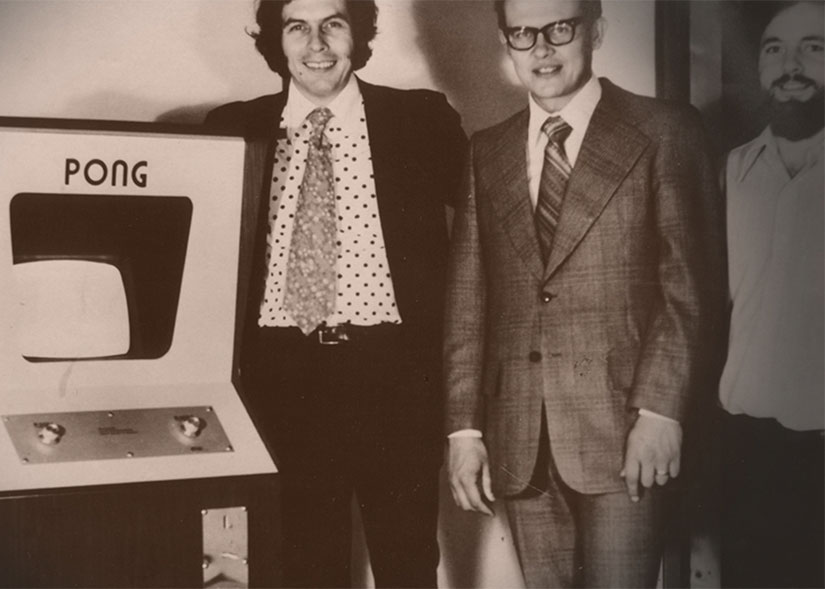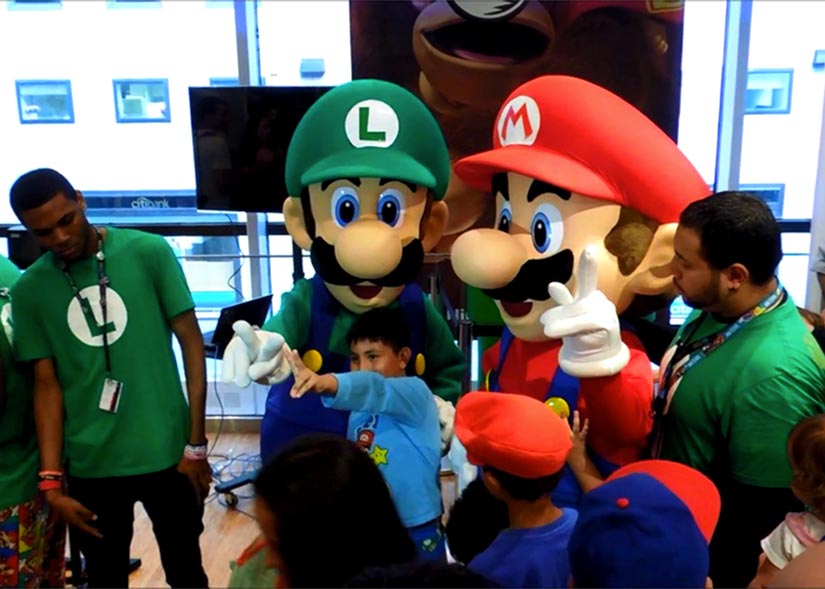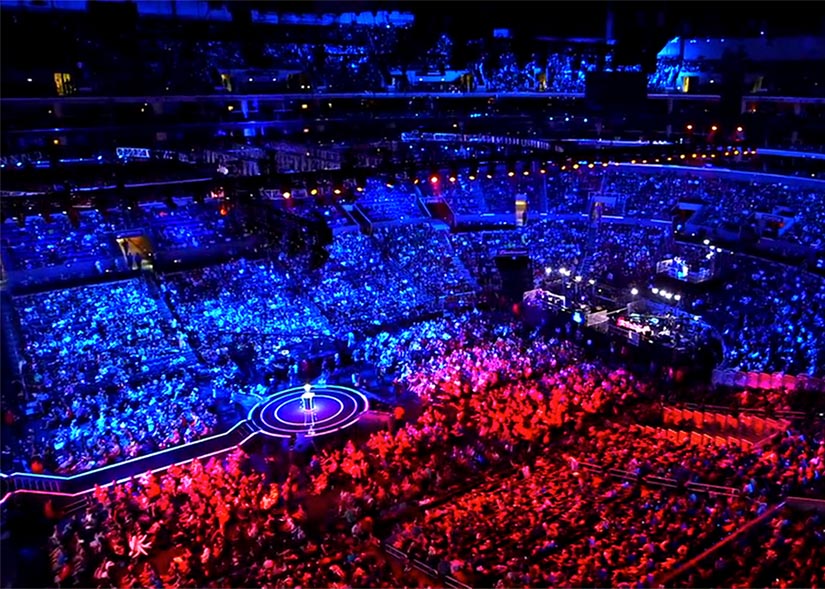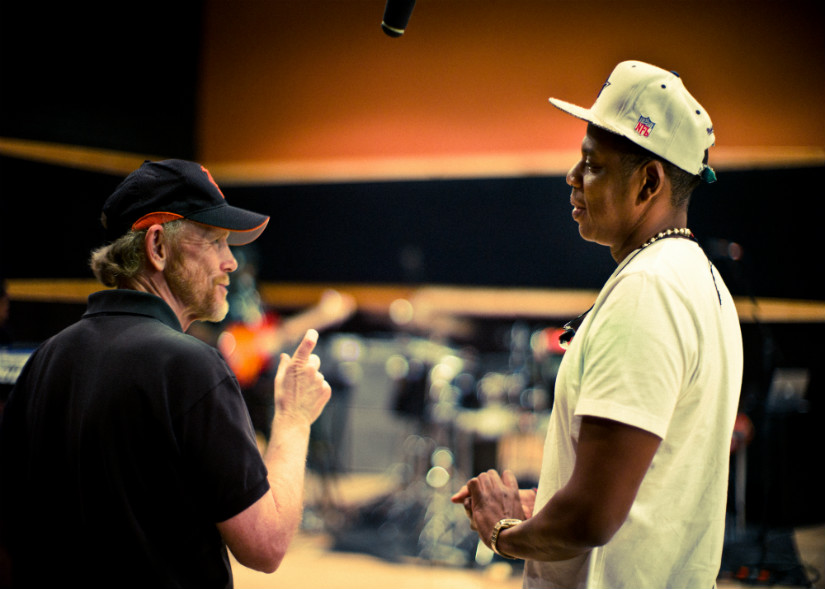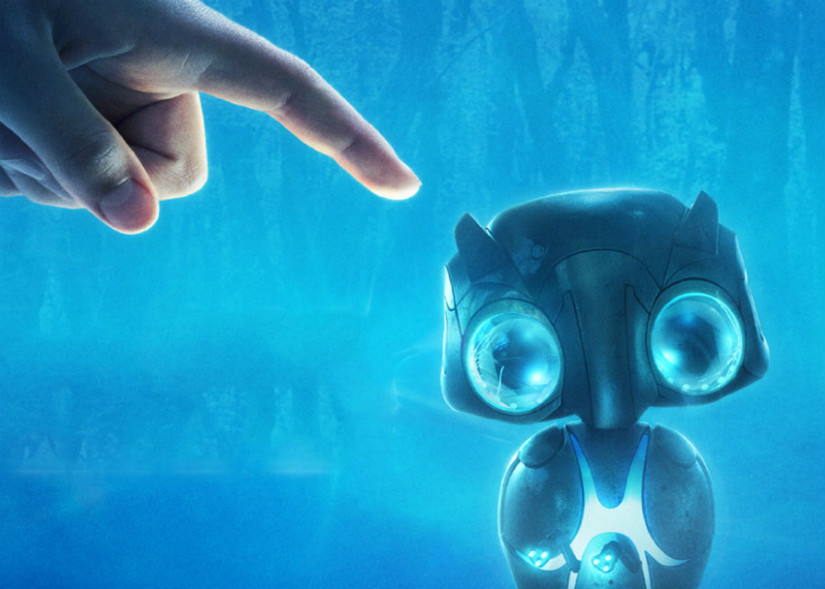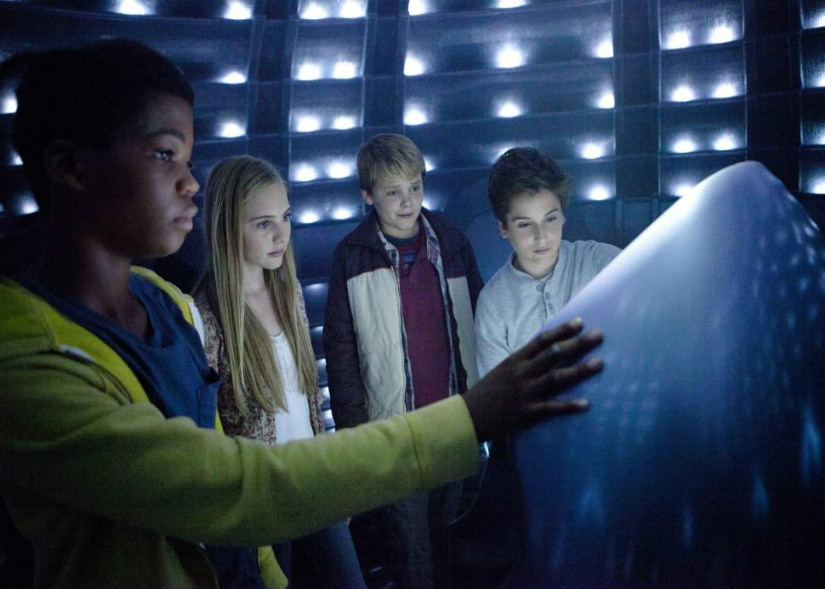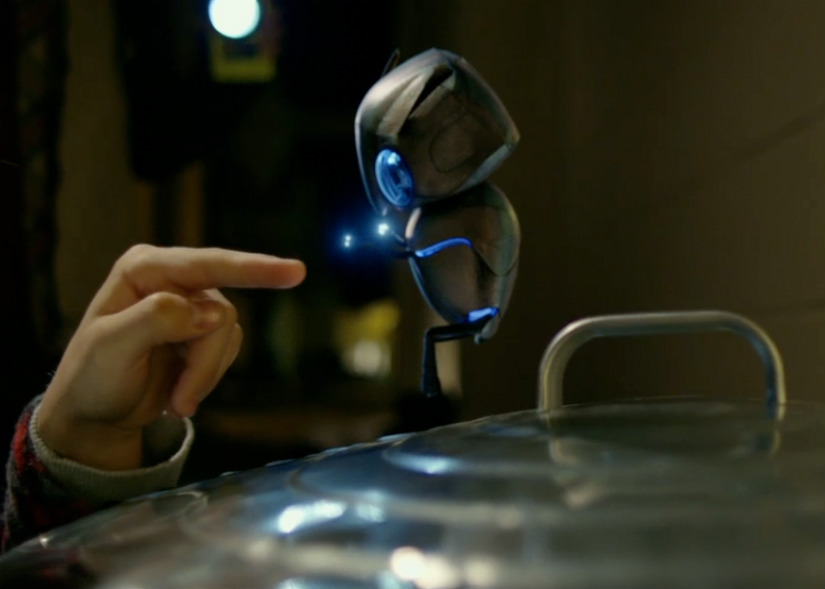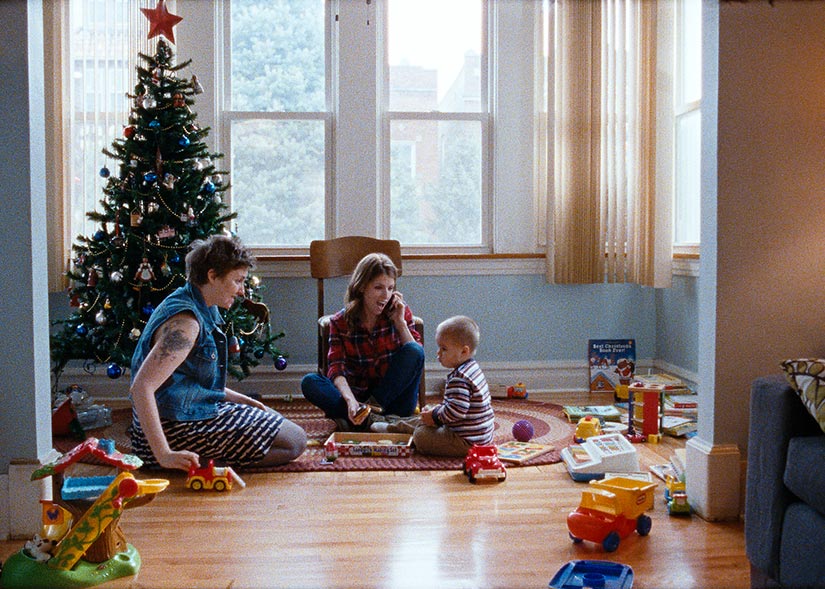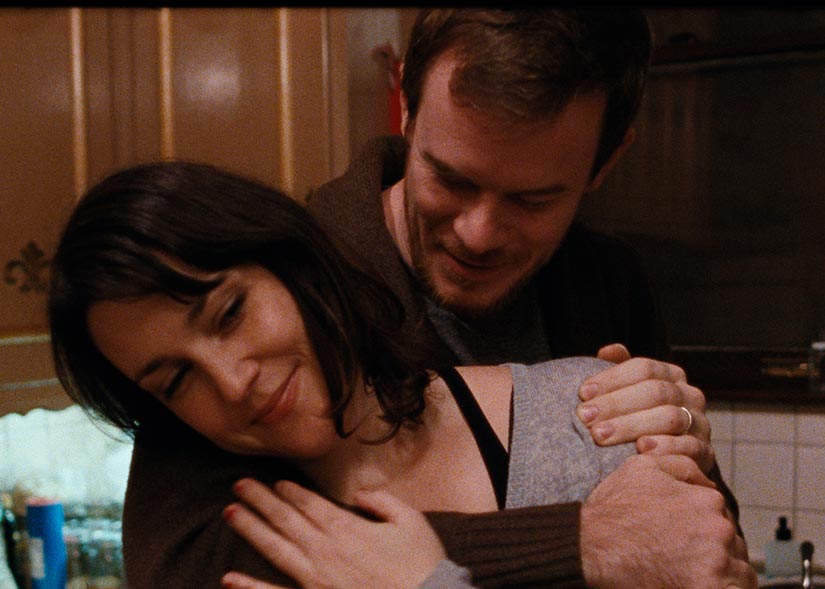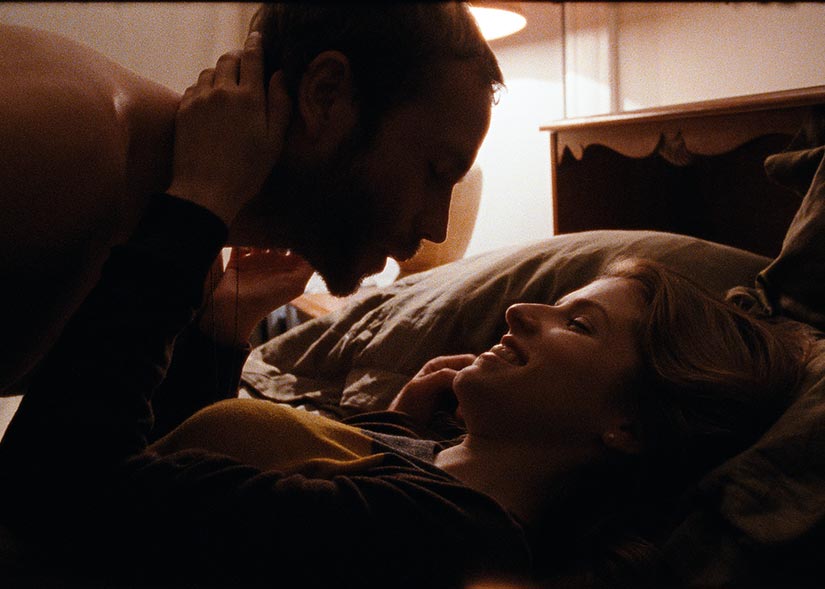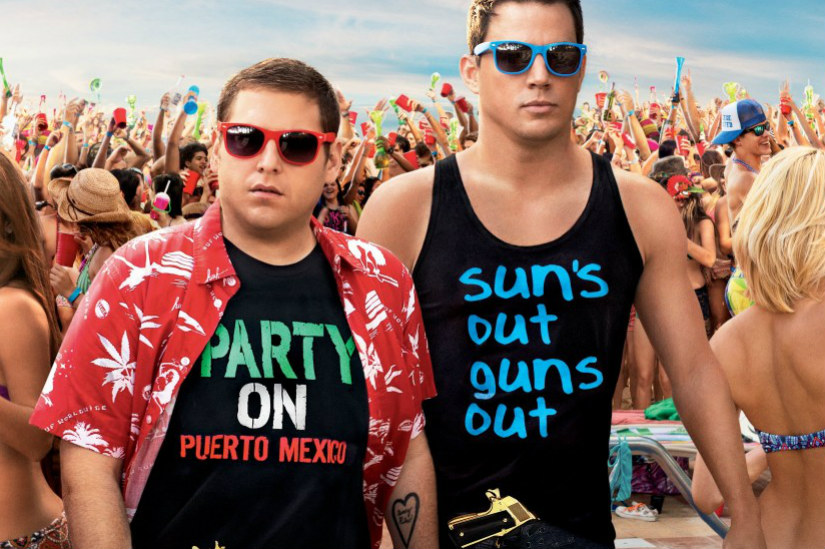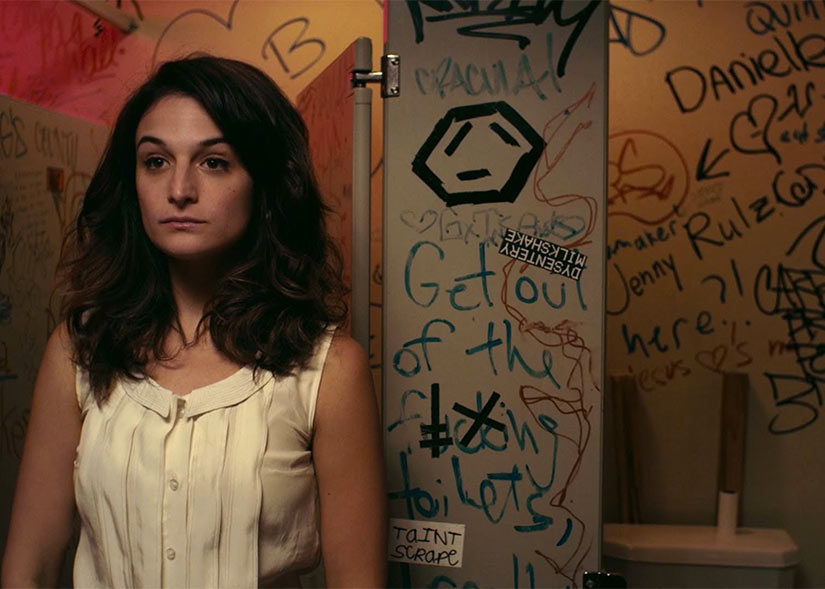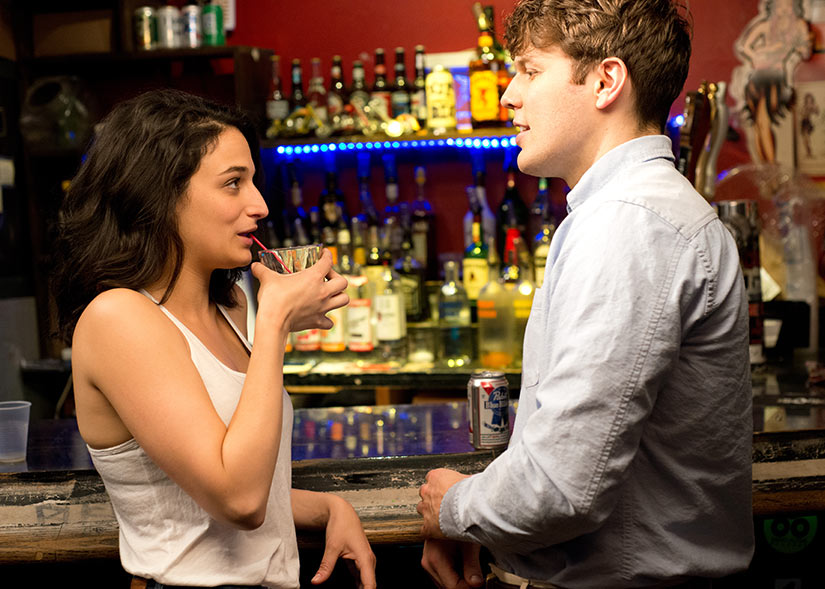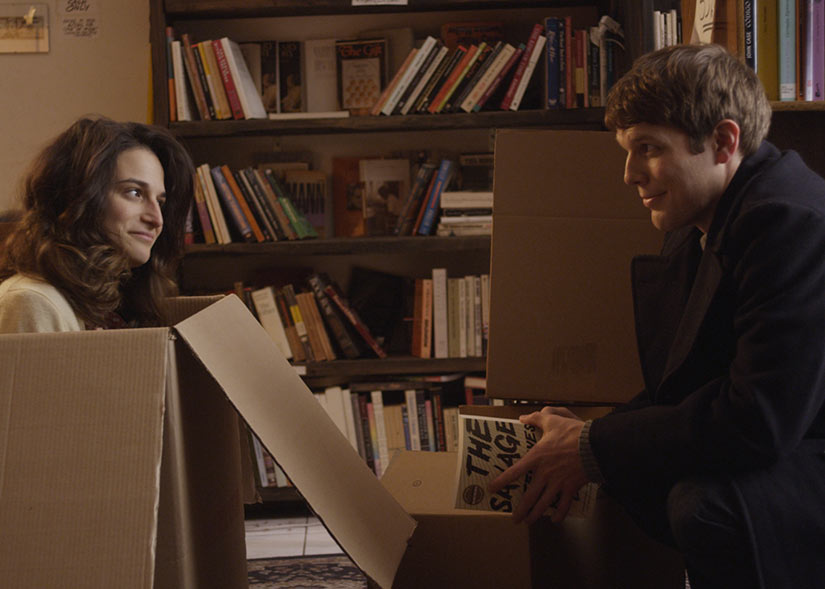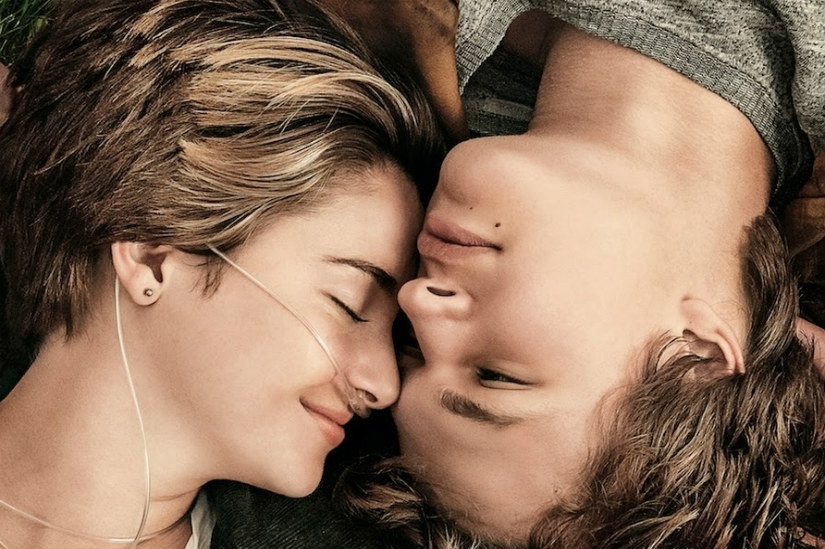[Review] Video Games: The Movie
It's hard to believe that the video game industry as it is right now has only been around for roughly 30 years. When compared to other major entertainment industries like music and film, the gaming industry is still fairly young. Yet, in spite of its relative youth, the industry has gone through the entire spectrum of failures and successes, but appears to be on a trajectory that will ensure it will continue to grow alongside the other staples of entertainment. Video Games: The Movie is a documentary that attempts to not only serve as a primer for gaming's history, but also sheds light on the culture surrounding the industry, the creation of video games, and the future of the industry.
[youtube id="s1u_oHGTJ-g"]
Video Games: The Movie
Director: Jeremy Snead
Rating: NR
Release Date: July 15, 2014 (VOD); July 18, 2014 (Theaters)
Like all documentaries, the subject matter is reliant on reporting the facts as entertainingly and informative as possible. Director Jeremy Snead doesn't cover every major release or news bit over the course of gaming's history, but he chose the most pivotal events, including the rise and fall of Atari, Nintendo's success serving as the rebirth of gaming, the growth of the industry alongside technology, and much more. At the same time, he also covers more than just history, as I pointed out in the introduction.
Snead was also able to amass a large cast of talent to interview for Video Games: The Movie covering many aspects of the industry from game developers and publishers to actors and entertainment personalities. His choice of interviewees are actually able to add strong input to the documentary outside of the typical "Video games are awesome!" Some of the major names of gaming like Nintendo's Reggie Fils-Aime and Atari's Nolan Bushnell are included, but also other notable names like Chronicle writer Max Landis and Scrubs stars Donald Faison and Zach Braff are also asked for their insight. The Goonies' Sean Astin also provides narration for the documentary.
However, there wasn't much insight from general gaming fans. Obviously, as a director intending to create a comprehensive documentary, the major names in gaming take priority over everyday fans. At the same time, a section could have been dedicated to regular fans sharing their input and experience. There are a few snippets here and there (with more scenes running during the credits), but a fan section would have been a great addition. At the same time, there's a lacking presence when it comes to conventions, both industry-run (E3) and more fan-driven (PAX). The omission doesn't hurt the documentary overall, but it's certainly a side to things that could have only helped bolster and shape the documentary a bit more.
Outside of the somewhat lacking fan input found directly in the documentary, Video Games: The Movie accomplishes a set goal Snead set out to achieve: create a comprehensive product illustrating all aspects of gaming that isn't solely entertainment. The industry, after all, is a business, but games themselves also serve as collective works of art from those working on the games to those actually playing them. Snead's documentary was successful in not only addressing the stuff beyond surface level, but also illustrating how gaming has grown from a small fandom looked down upon by the bigger heads in entertainment to a widely-successful and accepted medium.
I'm obviously biased when it comes to video games, having been a gamer for more than 20 years. In saying that, I've seen my fair share of video game documentaries, read articles and essays detailing the growth of the industry. However, Video Games: The Movie is the one project that was successful by encompassing what makes video games so fun and entertaining, but also sharing more about the culture surrounding games beyond the business and technical elements.
[Review] Made in America
Ron Howard has always been an interesting director. His projects range anywhere from How the Grinch Stole Christmas to A Beautiful Mind and The Da Vinci Code. Coming off his successful project Rush last year, I was curious as to what he'd direct next. To my surprise it was Made in America, a documentary about Jay Z and his Made in America music festival.
With Howard's track record (filled with both spectacular hits and misses), I was worried about how this doc would turn out. Would we get an in-depth look at Jay Z and his career? Would we get the bare minimum to please music fans? Well, the answer is more in the middle.
[youtube id="N59Jk8XsLLI"]
Made in America
Director: Ron Howard
Rating: NR
Release Date: July 11, 2014 (Theatrically)/July 22, 2014 (VOD and DVD)
Made in America documents Jay Z and his organization of the Budweiser Made in America music festival. Through interviews with artists like Janelle Monae, Tyler, The Creator, The Hives, Rita Ora, Eddie Vedder, and Jay Z himself, the doc hopes to better understand and frame the true meaning behind the "American Dream" while celebrating music and what it does to better everyone's lives.
The most interesting aspect of Made in America is how it's filmed. In an intelligent move, the grassroots like camerawork (using only one or two handheld cameras) clicks with the film's thematic resonance. The phrase (and its mentality) "pulled up by the bootstraps" is used quite often through the interviews in order to emphasize that each artist worked through tough times to find their current success. This wouldn't have worked so well had the production quality of the film been any higher. Hilariously enough, with not a lot of care put into the filming process, a few of the walls these artists have are broken down. For example in an interview with Tyler, The Creator, you can clearly see a boom mic in the background for a few seconds. Rather than clean up that scene in the final cut, it's left in so the interview has more character. The interviews are full of little imperfect touches like these.
While that imperfectness might not make for a visually compelling documentary, the relaxed nature of the film makes it easier to sit back and enjoy rather than absorb every bit of information. To emphasize this, the interviews are cut in between bits of the festival's performances. Capturing the overall essence of the festival, these bits are fun, aren't too impeding, and the cuts to Jay Z hard at work backstage are a nice change of pace. Unfortunately, this also means there's a lack of solid structure. It becomes needlessly difficult to discern the underlying message of the documentary as it jumps around and loses focus quite a bit. The doc can take you anywhere from an interview with D'Angelo to Run (of Run DMC) cooking eggs to Jay Z taking a tour of his childhood home. As Jay Z is the only one who gets a hefty amount of screentime, he's the only one we learn anything about. We get a brief refreshing bit of Janelle Monae's past, but everyone else gets two or three minutes and are then gone forever. While that might be acceptable for this doc's demographic, it's not going to be a draw for those who aren't so in tune with the music industry.
But what is here is entertaining to listen to. Howard has a few regular folks with unique perspectives (basically the antithesis of the "Rags to Riches" success stories presented by the artists) interspersed, and they're so engaging, I wish we would've got more of them. One in particular is a young roadie who's barely making ends meet, and has to live in a house with many other people in order to make rent. He gets two brief scenes, and his story remains inconclusive. I suppose that may be a criticism of the faulty optimism of the American Dream, but it completely clashes with the vibe of the rest of the film. It just begs the question of why bringing up the idea in the first place is necessary when it isn't used for anything of substance.
But Made in America accomplishes what it set out to do. An entertaining pop documentary with surface level information. That's not necessarily a bad thing here as the format of the film will appease fans of these artists, but it's extremely alienating for those outside of the bubble.
Made in America is not going to bring any new fans, but it's a fun party for those willing to attend.
[Review] Earth to Echo
I've never been a huge fan of E.T. The Extra-Terrestrial. Sure it paved the way for lighter science fiction films (and help popularize TV shows like Alf, Mork & Mindy, and most of later 80s wacky sitcoms), but for as much wonder the film had, E.T.'s design itself is dreadfully ugly. As a child I wasn't a fan of the walking poop monster, but I liked what the film represented. It encapsulated childhood with a point of view kids really could connect with. But through the years, science fiction films have lost that zazz, that childlike mystery. Every film about aliens and kids now is a cynical mess that's tantalizing in theory only.
That's why Earth to Echo piqued my interest. A found footage film about a group of kids stumbling on an alien? And it's only rated PG? That meant I'd be able to enjoy it without waiting for the other cynical foot to drop. Thankfully, Earth to Echo delivers on that promise.
[youtube id="JMlcdEtAiBA" autoplay="no"]
Earth to Echo
Director: Dave Green
Rating: PG
Release Date: July 2, 2014
Earth to Echo is about a group of neighborhood kids whose lives are going through some dramatic changes. Alex (Teo Halm), Tuck (Brian "Astro" Bradley), and Munch (Reese Hartwig) are best friends who are being forced to separate when they're neighborhood is being torn down for a new highway. When a mysterious electronic signal makes their phones "barf," the trio decide to use their last night all together to track down where it came from. When the trio find the source of it all, a small electronic alien they name "Echo," the resulting adventure leads them on the wildest night of their young lives.
I'm usually not an advocate of found footage films due to wild perspective changes and excuses for shoddy work, and unfortunately, Earth to Echo isn't a strong argument for the genre either. Although the reason Tuck carries around a camera the entire film makes sense (he's a kid with a YouTube account who wants more hits), it leaves so many questions unanswered. How can a 12 year old kid afford multiple GoPro cameras? How can he afford spy glasses with cameras built into them? Sure there's a nice kid friendly logic that permeates through the film (suggesting you're not supposed to pay close attention to this stuff), but it's these little technical details that take you out of the moment. It's hard to stay invested in a scene when the POV is constantly shifting between the many cameras these kids have at their disposal. The worse part of this is there's an explanation for this that adds a nice layer of realism (the film is Tuck simply editing all of his videos together on his desktop), but it's completely dropped shortly after it's brought up.
To be fair, the real bulk of the film isn't concerned with how the story's being filmed but the content. And on that front, Earth to Echo is just wonderful. Although the dialogue can be a bit heavy handed when delivering plot details (there's a scene where Tuck just repeats the next beat of the story over and over until the kids actually do it) and it has something against silence (no room to soak in the atmosphere as someone needs to say something at all times or they explode probably), these kids all sound and behave like real kids. There're subtle bits like when Tuck is filming a particularly interesting scene he yells, "Hey Munch, get out of my shot!" or every one of Munch's lines being delivered with a lovable awkwardness (such as when they lie to their parents about their plans for the evening). And Brian "Astro" Bradley is not only a former X-Factor contestant, he can act. The script doesn't admittedly ask much of him, but he's miles ahead of the other three kids in the ensemble (with Ella Wahlestedt being especially awful).
Earth to Echo really captures the essence of discovery. The plot may only be thinly stitched together fetch quests, but it's entirely nostalgic because of its sincerity. Reminiscent of E.T. The Extra-Terrestrial, the alien Echo just wants to get home (and it's much better designed), and even when generic government officials step in (complete with wonderfully awful dialogue), the goal remains the same. It's light hearted, the stakes are only as big as a PG rating (or a kid's narrow point of view) allows, and it follows through on one of the bigger plot lines set in the beginning. It's not always acted out or filmed in the best manner, but the story is genuinely entertaining. It's rare that I get swept up in a movie like this, but I sure love when it happens. I just wish the rest of the film was as good as Echo's animation is. Seriously, the visual effects are pretty great.
Earth to Echo is full of more problems than I'd personally like, but it's not necessarily bad. It's something to watch with the kids that won't bore you to death, will entertain you as long as you don't constantly question why things happen, and it's a movie where kids are kids instead of shells full of lines written by a 40- year-old man.
Earth to Matilda, this is a good movie.
[Review] Happy Christmas
Mumblecore has been growing into prominence within the independent film scene in recent years thanks to a few notable filmmakers like Lena Dunham (Girls, Tiny Furniture), Jay and Mark Duplass (Jeff, Who Lives at Home), and Joe Swanberg (Drinking Buddies). It took awhile, but I eventually warmed up to the genre's focus on naturalism, whether it's due to the actors' improvised performances, the use of a loose outline rather than a traditional screenplay, or the presence of an actual film camera (16mm specifically for Happy Christmas) rather than a digital one. The aesthetic behind independent, low-budget films is the backbone of the genre, and it's surprising that it took me so long to better appreciate it.
Or perhaps it's because I was waiting for the right filmmaker, and that's where Swanberg comes in. Partially because of his talents as a filmmaker, partially because of the stories he wants to tell, or partially because he is now a Chicagoan, there's something special about Swanberg's films that I'm drawn to. Read on as I find the words to help express why I felt so strongly about Happy Christmas.
[youtube id="7VaaYbraOrQ"]
Happy Christmas
Director: Joe Swanberg
Rating: PG-13
Release Date: June 23, 2014 (VOD)
Following a breakup, 20-something Jenny (Anna Kendrick) decides to move to Chicago and live with her older brother, Jeff (Swanberg), his wife Kelly (Melanie Lynskey), and their newborn son, Jude (Swanberg's actual son). As Jenny attempts to rediscover her identity, whether it's simply by hanging out with her friend Carson (Dunham) or exploring a new relationship with the family babysitter, Kevin (Mark Webber), her presence has an undeniable impact on Jeff and Kelly's lives... for better or for worse.
However, whereas most films may take the easy "self-discovery/identity" route with a typical narrative structure with their protagonists, Happy Christmas defers from what's become expected and standard in a narrative film. Without spoiling the film, I'd say the focus isn't directly on Jenny and her story (despite her being the main character), but how her presence shapes and develops Kelly's character. Kelly's story is much more intriguing than Jenny's as she attempts to re-balance her artistic leanings with her newfound responsibilities as a new mother, but it's through Jenny's scope that we're able to see how those two seemingly opposite spectrums can work together.
Happy Christmas shares a universal appeal, but has an extra special element that Chicagoans can appreciate a little more. As a 20-something myself with friends starting their own families, I can understand and empathize (a bit) with finding the compromise between work and family, which is something I think most Chicagoans feel given the "grind" and "hustle" the city offer, combined with the "Midwestern family values" we inherently share. Given the indie, low-budget nature of the film, Happy Christmas also feels like a passion project made with friends, to the point where I was actually shocked to see a casual acquaintance of mine as an extra in the film (Erin, you really do deserve an award for being Best Stander).
It's because of Swanberg's ability to create a small film with a small focus with a 16mm camera that further accentuates that direction that helps make Happy Christmas work so well. The actors individually have their own levels of success both in and out of the film community, most notably Kendrick's growing star in Hollywood and Dunham's large success with Girls, yet they're still able to embody these roles and characters that allow you to truly believe their characters and make you think, "Yeah... I could see myself grabbing a beer with them." Granted, this is what an actor's job is to do, but when was the last time you watched a Tom Cruise or Brad Pitt film and realistically envisioned yourself holding an actual, insightful conversation with them? Again, this comes down to Swanberg's whole vision for his projects that makes audiences truly connect with his characters. And it's because of this singular ability that I personally am so drawn to his films.
The big question, then, is how general audiences will receive Happy Christmas. As somebody who finds joy in analyzing and critiquing films, there's so much going on with Happy Christmas, both narratively and technically/cinematically, that I loved just focusing on and breaking apart. However, for somebody who's looking for a weekend rental or an impulse purchase, you might be expecting something different. Yes, there are legitimately funny scenes in Happy Christmas, but you won't be slapping your knees and gasping for air. Instead, I hope anybody that watches Happy Christmas can appreciate the film for what it is: an honest look at familial relationships that can be both funny and depressing... sometimes even at the same time.
[Review] I Am I
Films that use memory loss as the central conflict can enter into some very interesting territories, like in Eternal Sunshine of the Spotless Mind, Memento, and Shutter Island (to name a few). The struggle, however, is to craft a cohesive puzzle/mystery that holds up in spite of such a character deterrent that disallows real character development. To find a way around this while still keeping true to the character and their respective ailment. In I Am I, writer/director Jocelyn Towne attempts to craft a touching tale about a daughter making selfish decisions to get to know her absentee father despite his unfortunate mental condition, but instead creates a film that leaves too many loose ends by the time the credits roll.
[youtube id="OVC2XIW22RI"]
I Am I
Director: Jocelyn Towne
Rating: N/A
Release Date: June 13, 2014
At her mother's funeral, Rachael (Towne) runs into her father, Gene (Kevin Tighe) who left the family when Rachael was young. She soon discovers that Gene is suffering from Korsakov's Syndrome, a form of amnesia that prevents Gene from remembering anything past the age of 34 and was placed in an assisted living facility by her mother a year prior. In an attempt to get to know the father she never knew, Rachael begins to visit Gene frequently; unfortunately, he confuses her for his ex-wife and Rachael's mother, Sarah. She soon begins to embrace his delusions by dressing in her mother's old clothes and playing the role of her deceased mother.
Right then and there, I Am I throws off red flags. Thankfully, the delusions don't go far enough to even broach the topic of incest, but does it ever feel like the line is going to be crossed. And this is due to Rachael's selfishness. I Am I's script justifies it via Gene's handler, Jonathan (Jason Ritter), allowing the visits to continue "as long as Gene is happy," and Gene's happiness is, in fact, elevated during his time with Rachael/Sarah. However, at what cost? The price of his happiness is ultimately teased towards the end of the film, but it doesn't justify the means in which the script took to get there.
Arguably, I Am I is a character piece between a daughter wanting to meet the father she never knew growing up. However, the means in which she does this comes at the sake and well-being of the very person she grows to love and care for. It's a character flaw I could never look past that the film doesn't punish her for. There's a climax in the film where you expect some type of true development for Rachael's character to experience, but the moment is lost thanks to the film's shoddy ending.
The presence of the supporting characters feels like an afterthought. There are notions of a romantic subplot between Jonathan and Rachael that inevitably just end with no real development (or elaboration, for that matter). Rachael's step-brother, Seth (Simon Helberg), is used for a very minor plot device. Rachael's much older husband, Keith (James Morrison), is used to drive the emotional theme of Rachael's longing for an older male figure in her life. Really, they're just auxiliary characters meant to beef up the film's cast, but aren't used that much.
I Am I had an interesting premise: a daughter pretending to be her mother to get to know her amnesiac father. Unfortunately, the film feels emotionally bland and uninteresting led by a manipulative and selfish lead character. This is one film you wouldn't mind developing amnesia for.
[Review] 22 Jump Street
21 Jump Street was one of my favorite films of 2012. Smart, quirky, hilarious, and proved that remakes could work if they're done in a loving way. When 22 Jump Street was announced, I was worried. Could lightning strike twice? Sequels to great comedies are usually terrible and unwarranted, so why would 22 Jump Street be any different? Directors Phil Lord and Chris Miller must have realized our concerns too since 22 Jump Street takes all of those criticisms and says "Who cares? We're doing this anyway and you're going to love it."
22 Jump Street is a ridiculously funny film that uses self-awareness to poke holes in the fact that every successful Hollywood film has to get a sequel.
[youtube id="qP755JkDxyM" autoplay="no"]
22 Jump Street
Director: Phil Lord and Christopher Miller
Rated: R
Release Date: June 13, 2014
22 Jump Street (which now takes place at a Vietnamese church across the street), has officers Schmidt (Jonah Hill) and Jenko (Channing Tatum) going to college on a mission to infiltrate the school, get close to the students, and to discover the suppliers of a new popular drug called “WHYPHY.” If the synopsis makes the film sound exactly like the first, it's because it is! In a quirky turn of events, multiple references are made to the fact that this film is exactly like the first. As a shout out to sequels in the same predicament, Jump Street directly refers to the movie studio (as "The Police Department") when Schmidt and Jenko are told to do things in the exact same fashion because it was successful the first time. Unfortunately, while this may be the film's most hilarious gag, it's also its biggest problem.
While referencing its blatant copying of the first film's plot may be smart, it doesn't change the fact that we're watching the same movie. It's a like a mask attempting to cover the film's more noticeable flaws. When you want to point out why a scene or plot point might be funky, the film always tries to explain it away with "it was done that exact same way the first time." In fact, there are no surprises in this film. You guess every twist, Schmidt and Jenko's arcs are the same (they both separate as they fall into different social crowds, except this time it falls into place the way you expected it to in the first film), and with the surprise gone the film's greater moments are a bit less effective. But in the same breath, as much as I can complain about the film's similarity to the first, it's also just as funny. It uses this similarity to further delve into the bromance between Schmidt and Jenko and just have a good time.
22 Jump Street has fantastic jokes. From cartoonishly out of place things like Benny Hill references, a school named "The Plainview Red Herrings," to multiple sets of twins, each joke is delivered with ease and the improvisation is most definitely on point. Hill and Tatum are absolutely wonderful together as they've perfected the comedic rhythm they had in the first. Channing Tatum once again is easily one of the stand outs as much of his jokes had to have come from the man himself. It's still so great to see Tatum deconstruct his Hollywood image as the buff everyman into a lovable goof. He also brings one of the film's biggest laughs when he finally realizes the significance of one of the plot points.
If you love laughing at Jonah Hill, but not necessarily with, most of his jokes are self degrading in nature. He's more of a straight man to Tatum's goof this time around, but he still manages to provide many laughs with his physicality. The rest of the returning cast is in fine form as well. Nick Offerman does a lot with what little screen time he gets, Rob Riggle does great impressions, and newcomer (and Workaholics alum) Jillian Bell has a fantastic sense of deadpan delivery. But Ice Cube, with a welcome extended role as Captain Dickson, has to be the MVP of the whole thing. Every one of his lines are strong, and not a single moment with him is wasted.
Early into the film, you realize 22 Jump Street is going for over the top in the best way. It's ludicrous, but restrains that stupidity in a way that just makes the film one big party. It's not trying very hard to be a compelling film, but that's sort of the point. You're not supposed to sit there and poke at flaws (like I just did), you're supposed to look at the ceiling and sort of thrust through it. And besides, it's hard not to have a good time when everything is just fun to watch. I was laughing in large amounts, you'll probably laugh in large amounts, and then you'll go home smiling like an idiot. Like a good party with friends you've known for awhile. You'll know their stories and jokes by now, but that doesn't necessarily mean you'll be bored to tears.
22 Jump Street is a celebration of its existence. A well earned victory lap that openly mocks the fact that it was created in the first place. It throws caution into the wind, laughs at the fact it put in very little effort into the story, and even takes the bromance found in most buddy cop comedies to the next logical level. Lightning has definitely struck twice.
I didn't want this party to end, and I can't wait for Jump Street Generations.
[Review] Obvious Child
For whatever stupid reason, there was this general stigma in mainstream entertainment that women weren't funny. Obviously, this was just some stupid misconception as iconic comediennes like Roseanne, Ellen, Lucille Ball, Carol Burnett, and other female luminaries were just as funny (if not more so!) than their male counterparts. Nevertheless, this stigma floated around for the longest time, and it wasn't until fairly recently that people realized that women are, in fact, funny. Thanks to shows and films like 30 Rock, Parks and Recreation, and Bridesmaids, we have more contemporary examples that the ladies can bring in the laughs and the money the same way the guys have been.
I say all of this as a preface for my review of Obvious Child because I feel that Gillian Robespierre's film is just the type of indie comedy we need more of that transcends who's in the lead, male or female. Obviously, the success of Obvious Child is well-balanced thanks to Jenny Slate's performance, but I'll get more into that later. Simply put: If you find a theater playing Obvious Child, I highly recommend checking it out. Now let me attempt to explain why.
[youtube id="r2GN3wdfqbA"]
Obvious Child
Director: Gillian Robespierre
Rating: PG-13
Release Date: June 6, 2014
Donna Stern (Slate) is an aspiring stand-up comic who is not afraid to share a bit too much of her life on stage in the name of humor. Unfortunately, this causes her boyfriend to break up with her just weeks before Valentine's Day. To make matters worse, she soon gets laid off from her book store job due to the store's closing. One night, she forms a connection with a man at a bar, Max (Jake Lacy), who is Donna's complete opposite. Their night of revelry ends with Donna becoming pregnant, forcing her to make a life-affirming decision that she may or may not be ready to make.
In recent memory, Juno stands out as the indie darling that took something like unwanted pregnancies and made it the focal point of a whimsical, quirky dramedy. Whether you're a fan of Juno or not, it represented a modern film that allowed us to take a look at a somewhat social taboo such as unwanted pregnancies and made us truly ponder the topic without getting too political or preachy. However, whereas Juno hid behind irreverent non-sequiturs and pop-culture references out the wazoo, Obvious Child forms a more realistic and human connection between its subject matter and its audience.
As I mentioned previously, this is thanks to the combination of writer/director Robespierre's vision and Slate's performance. Slate evokes an everywoman charm that I think anybody can relate to. Obviously, I'm not a woman, but I feel that some of the conversations and jokes Donna has throughout the film is similar to the types of things my friends and I talk about, no matter how awful or disgusting they are. In a way, Obvious Child shares the same ethos that Judd Apatow films do, but better grounded and more human.
The downside to this connection, unfortunately, is that the characters both surrounding and opposite the lead, more specifically Lacy's Max, feels one-dimensional and not a fully-realized character, but someone who's only meant to serve as a foil/opposite to Slate's Donna. Here we have the rambunctious, wild, emotionally-broken Donna set opposite from the well-put together, straight card Max. It's a character trope that exists in almost all comedies, and it's one that I wish the genre will move away from.
Regardless, I think Obvious Child is one of the better films I've seen this year. Jenny Slate's performance in the film shows so much promise from both a comedic and dramatic perspective that I can imagine (and hope!) she'll eventually find herself in the spotlight of successful and talented comediennes on the same vein as the aforementioned actresses in my introduction. Writer/director Gillian Robespierre, meanwhile, has a knack for capturing not only the human side of comedy, but the comedic side of humanity, and I can't wait to see what she does next.
[Review] The Fault in Our Stars
Cancer sucks. It's such an invasive, destructive disease that ruins lives. There's never much you can say to those who suffer from it, either. Our human need to emphathize will lead most of us to say "Oh, you have cancer? My __ died from that" knowing full well that we'll never truly understand the suffering for ourselves. We're just left grasping at intangible straws that crumble the moment we reach for them. I just lost a grandmother to it two months ago, and had seen both my father and mother struggle with their own bouts a few years apart. While I've never had to face the beast myself, with how prevalent it is in my family, I'm sure my own fight is going to take place some time from now.
But where does The Fault in Our Stars lie in all of this? It's for folks like myself in the thick of it all, yet outside of it enough to necessitate an inside point of view. The Fault in Our Stars is not the romance it's advertised as. It's a poignant drama dissecting the debilitating nature of disease and how to surpass it.
[youtube id="9ItBvH5J6ss"]
The Fault in Our Stars
Director: Josh Boone
Release Date: June 6th, 2014
Rated: PG-13
Based off the popular Young Adult novel of the same name, The Fault in Our Stars follows Hazel Grace (Shailene Woodley), a young girl suffering from thyroid cancer who now has to use an oxygen tank to breathe since it spread to her lungs. At a cancer support group, Hazel runs into Gus (Ansel Elgort), a boy who once had osteosarcoma before removing it with a leg amputation. As Hazel has lost her sense of self and pretty much given up, Gus is the new spark of life that urges her forward. As the two grow closer, unfortunate events take place that test the boundaries of their friendship.
Disease dramas are a dime a dozen. When done well, you'll have a strong focus on the protagonist rather than the disease (Terms of Endearment, 50/50, The Big C), and when done badly, you forget you should care as the focus is strained between the folks surrounding the main character (A Walk to Remember, 65% of the Lifetime Movie Network). Basically, in order to fully appreciate how much diseases suck, we need to understand and emphathize with the main character and avoid putting them on some unreachable pedestal. Without that basic framework, we're left wanting as the film wants us to shed undeserved tears. Because in the end, it's not about the disease, it's about the the individual. And that's where The Fault in Our Stars soars. More so than any teen romance, disease drama, or teen film in recent memory, Fault is lazer focused on Hazel. The point of view is built so strongly, we're feeling what she's feeling. And that also means Gus isn't your everyday "Guy changes woman's life" found in most romances now.
But it's not exactly all perfect either. While the film absolutely nails creating two individuals completely separated from their disease (as in, it's not the only way to identify them), it falls into several pitfalls of the romance genre. There is plenty of overtly corny dialogue as it's almost too linguistically distinguished to come out of a kid's mouth. While Hazel sounds like she's a teenager, much of Gus's dialogue sounds like a thirty year old man looking back on life. While you can argue that disease would mature an individual beyond their years, it often took me out of the moment to hear Gus say something along the lines of "It would be a privilege to have my heart broken by you" as I found my eyes roll more than once. But in the same breath, most of that dialogue comes from the source material and, while I'm not the hugest fan of how cheesy it sounded, fans of the text are most likely going to love hearing it.
The film also has a huge pace problem. I haven't read the source material myself, so I can't fully assess what was removed or kept for the film, but there is a huge amount of time spent on non-sequiturs, or moments that aren't particularly necessary for the narrative to move forward. Although one of the detours features a brilliant cameo/minor role from Willem Dafoe, most of them don't attribute to character or world building. Fault could've really used the brevity too as when it does focus on character, it really works. As stated earlier, The Fault in Our Stars develops a hearty central relationship worth investing in. Their relationship is sadly realistic as it's bred more out of necessity and panic that their lives could end at any minute. Yet, it's incredibly touching to find them fighting back against the current. Also helps that Shailene Woodley and Ansel Elgort are perfect together. Every scene has the right amount of awkward. yet charming chemistry a relationship like this needs. I haven't seen Elgort in much before this, but I hope he gets to be in things far more often. He's the right leading man for these types of situations.
But the biggest praise for The Fault in Our Stars (which attributes for much of the final score) lies with its finale. A nice twist on my first expectations, and an ending that could've easily fit any other romantic film. Oddly, that's where Fault makes the most headway. When it reaches past the boundaries of the disease drama, and can easily mold to other films. These two kids are no longer just kids with diseases, they're kids stuck in a tragic love. Whether or not you completely buy into that love doesn't matter, either. Because while the major focus is romance, the hidden current in the narrative is fighting for survival, for hope.
The Fault in Our Stars is true to life in such a splendid way. Despite being constantly reminded of doom looming on the horizon, it's content to revel in the small pockets of serenity within a set number of days. And that's what my mother and father told me fighting disease is like. Rather than just survival, true victory lies within the gall to laugh in the face of death and live like you weren't struck with it in the first place.

